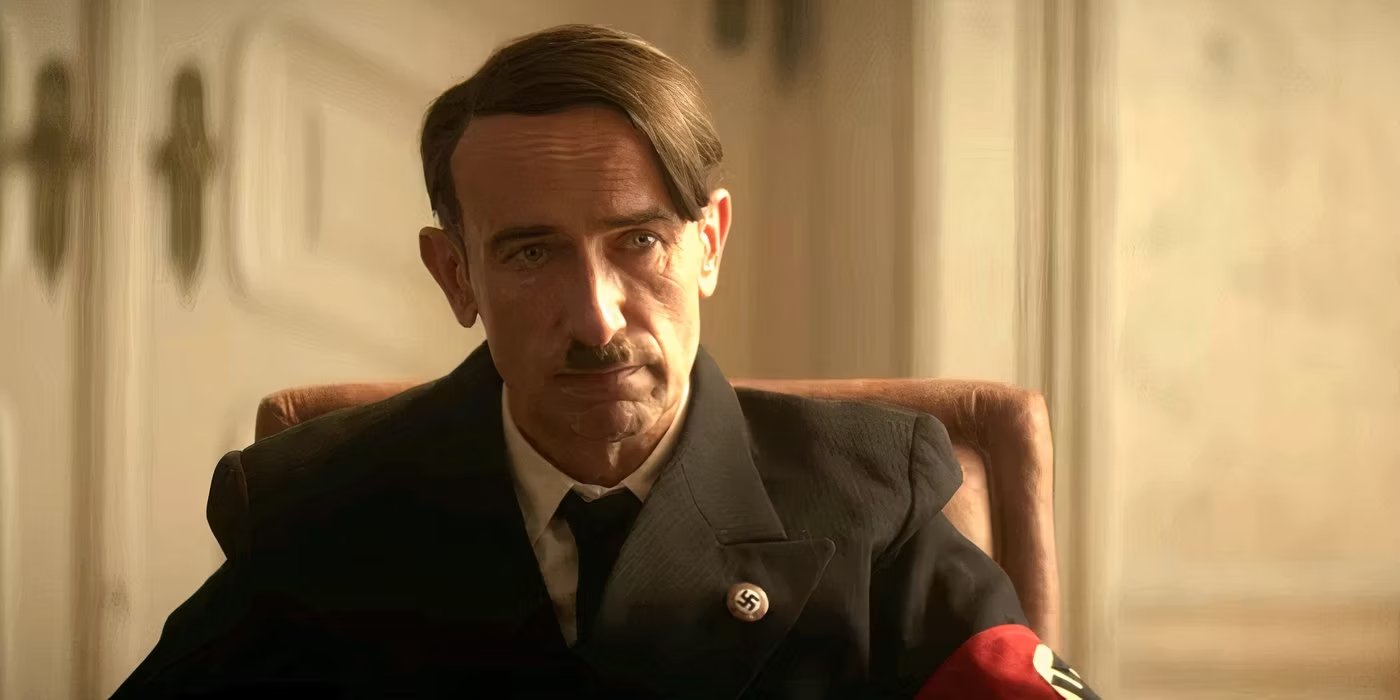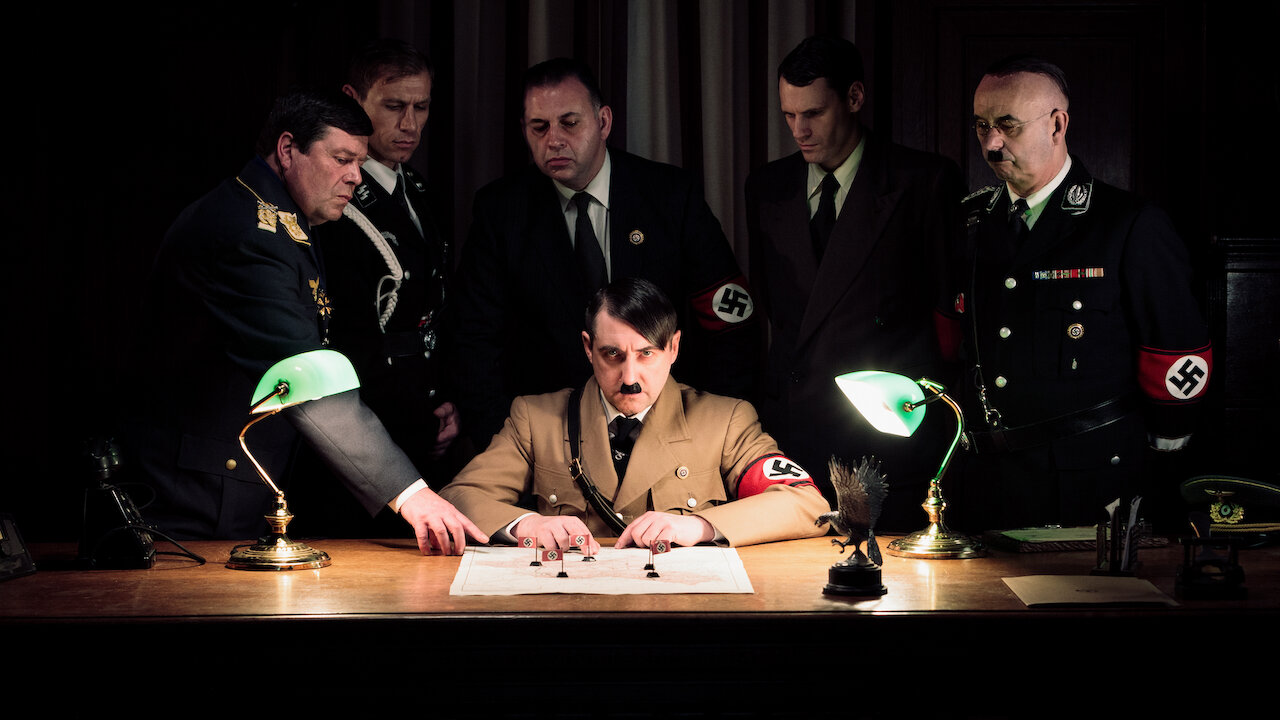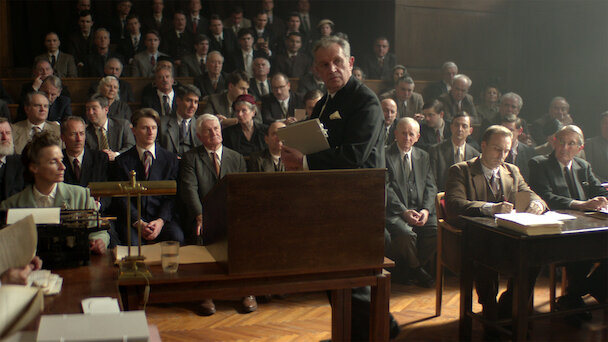History is More Relevant than Ever in Netflix’s Hitler and the Nazis: Evil on Trial. Why is it that some people (names excluded) are beginning to think (again) – that authoritarianism looks fun (again)? I honestly don’t get that. Regardless, Netflix’s new Hitler and the Nazis six-part miniseries is really fantastic in that it gives us a ton of new information to consider when reflecting back on World War II and the Germans’ aspirational Third Reich.
Let’s get into it – I mean, spoilers? No, you know how World War II ended, and what happened. But you don’t know how this series is edited and cut and pulled from the Nuremberg trials. So, make sure you see it regardless of whether you continue reading or whatever. Oh, never mind.
A Gripping Retelling with Fresh Techniques
Joe Berlinger, the renowned director of his true-crime masterpieces like Brother’s Keeper and Conversations With a Killer, brings his narrative flair to this six-part documentary. Obviously Berlinger isn’t covering much in the way of new ground – we all know the history. BUT, even so, the packaging of said stories and histories is what is revolutionarily new here. I believe this show is utilizing some newly released trial footage and audio, which makes the series seem like it is crafted more like a narrative thriller than a traditional documentary. Archival footage is restored and colorized, interwoven with high-quality dramatic recreations, making history vividly come alive. (I even wondered if the new footage was shot in Black and White, then colorized to attempt to closer align the original footage? Bet you a buck it was. Readers, let me know if you’ve heard one way or the other.)
Berlinger is actually outspoken in his aims to reach millennials and Gen Z, a demographic alarmingly ignorant about the Holocaust. If you dig at all, you’ll see that there are some really disturbing gaps in knowledge among these generations. But even though Netflix has a vast global audience, it remains to be seen as to whether a younger audience will go… HUH – HISTORY – I’M GONNA CLICK ON THAT ONE. But we will see. Hopefully it will be visually arresting enough that it gets the eyes that it needs to teach us the lessons that we need to learn as a society.
Why This Series is Urgently Needed Today
I mean – let’s be clear, Berlinger is going out of his way to draw some really chilling parallels between Hitler’s rise to power and the current political climate. He’s definitely emphasizing the erosion of democratic institutions and the rise of authoritarianism around the world (hint hint wink wink). The series is a stark reminder of how easily democracy can be dismantled from within, echoing the tactics Hitler employed after the Beer Hall Putsch. And I do love the way Berlinger utilizes the Nuremberg Trials footage and audio in order to provide the series with a really intriguing narrative backbone. Most importantly, I love how it shows the need to keep despots and monsters accountable.
A Cinematic Experience with Powerful Visuals
I found it FASCINATING that the series utilized AI in order to recreate the voice of journalist Willim L. Shirer, from whom most of this story’s reporting comes from. It was Shirer’s firsthand accounts that provide a compelling and indisputable eyewitness perspective. The visual storytelling is particularly striking, with recreations of events like Babyn Yar, the “Holocaust by bullets,” providing an emotional impact that mere words could never convey. And I had actually never heard of Shirer before encountering this miniseries and I can’t wait to get ahold of his books. They seem like they would be compelling reading.
Echoes of the Past in Today’s World
I was fascinated the way the series never mentions current political actors, and yet you can see their impact on this series. The scholars and historians speaking within this series continuously drew subtle yet powerful parallels between the tactics used by Hitler and those seen in recent years in the U.S. Berlinger himself acknowledges the eerie similarities, from the use of “fake news” to the appeal to disenfranchised groups longing for the “good old days.” Heck, Hitler himself in speeches (specifically in February of 1940) called for making Germany great again. But really, what American president doesn’t want to make America great? The larger question is, will the president support and even bolster the Constitutional scaffolding set there to strengthen our nation? That is the most important detail we should take away from this series. Hitler dismantled the German government from the inside out… it was his attempted coup from the outside that actually failed.

Conclusion: A Must-Watch for Today’s Generation
Hitler and the Nazis: Evil on Trial is more than a history lesson; it’s an urgent call to understand and recognize the signs of authoritarianism. With its innovative storytelling and timely message, this miniseries is a must-watch, especially for today’s youth. It’s a stark reminder of the past, echoing warnings that are all too relevant today. Berlinger’s work compels us to remember, reflect, and remain vigilant to ensure history does not repeat itself.
Edited by: CY


